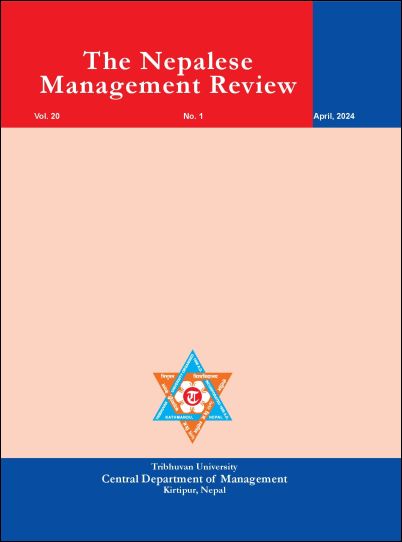Exploring the effects of E-Banking Products and Services on Conventional Banking Transactions in Nepalese Commercial Banks
DOI:
https://doi.org/10.3126/tnmr.v20i1.64743Keywords:
E-banking, ATM System, Mobile Banking, Internet Banking, Conventional BankingAbstract
This research investigates the growing scenery of E-Banking Products and Services within Nepalese Commercial Banks and their impact on conventional banking transactions. In the context of global financial sector transformations driven by technology, this study seeks to provide insights into the specific implications for Nepal's banking industry.
To achieve this, the research employs a comprehensive framework, analyzing the range of E-Banking Products and Services currently offered by Nepalese Commercial Banks. It describes e-banking as the ATM banking, Internet banking and Mobile banking and their impacts on conventional banking transactions within Nepalese Commercial Banks. A mixed-methods approach is applied for this research to understand how E-Banking products and services affect conventional banking transactions in Nepalese Commercial Banks.
Ultimately, the objective of the research is to offer valuable insights into the complex interplay between E-Banking and conventional banking transactions in Nepalese Commercial Banks. By enhancing our understanding of this dynamic background, the study intends to provide practical recommendations and strategies for banks to influence the benefits of E-Banking while mitigating potential drawbacks. This research contributes to the broader discussion on e-banking technology adoption and its implications in emerging economies and banking practices.




